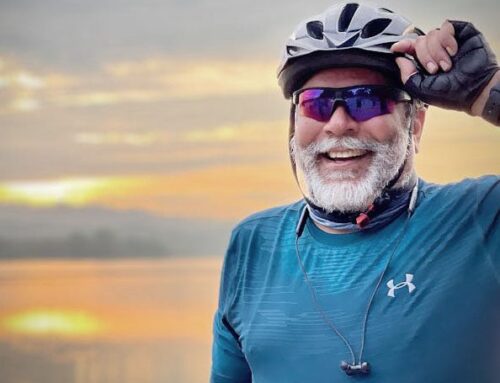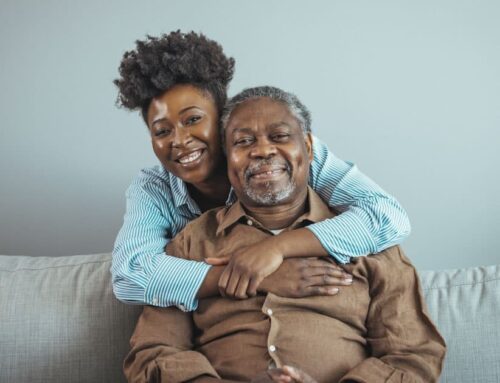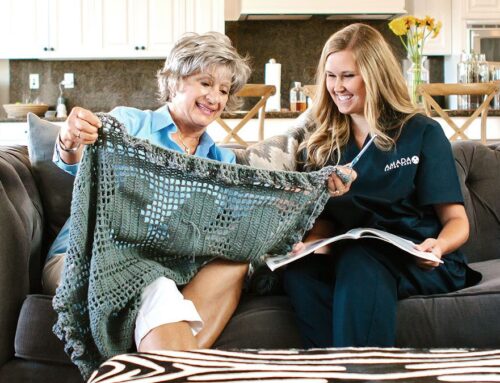Back in the summer and fall, many older Americans double-vaccinated against Covid-19 were enjoying lifted restrictions and a return to social life, complete with gatherings of family and friends, travel and other activities. But with this winter’s Omicron variant surge, health experts are united in recommending that seniors adjust their plans for attending parties and events, delay air travel and cruises, and avoid lengthy amounts of time in busy public venues.
These recommendations come as evidence grows that breakthrough infections of the highly contagious Omicron poses a high risk to senior citizens and that a booster shot is critical for older adults to avoid the virus’s worst effects. Omicron is believed to be a milder coronavirus variant than Delta, but older adults and the elderly are still at high risk for health complications given they have less robust immune systems and often carry underlying chronic conditions. An analysis of hospital data released Dec. 15 by the Kaiser Family Foundation pointed to breakthrough cases of fully vaccinated adults hospitalized with Covid-19 most often compromising the health of older adults with diabetes, CHF, hypertension, and COPD.
The Centers for Disease Control and Prevention earlier this month released data showing that since the start of the pandemic, nearly 590,089 people over 65 years old have died from the virus. This means that 1 in every 100 Americans over the age of 65 has fallen to the disease. LTC News spoke to a CDC official who expressed concern that complacency has set in and “too many people are ignoring common-sense precautions.” With multiple health issues complicated by Covid-19, the number of older adults needing long-term care services will grow, noted LTC News.
Health experts encourage avoiding both panic and indifference. Successfully navigating the Omicron surge depends largely on using the tools that have proven to be effective. Given this variant is much more highly transmissible than Delta suggests the best course of action is going back to the basics of prevention. Following are some reminders on how to protect yourself and your senior loved ones:
Mask up properly
The simplest and yet one of the most effective protection tools is a face mask, says the CDC. Being that Omicron spreads more easily, some health experts are advising to forgo cloth masks and instead wear three-ply surgical masks. These are the disposable masks found at drugstores, grocery and retail stores, and online. If you choose to wear a cloth mask, make sure it is at least two layers but try to add a third layer and even a filter (or disposable mask underneath) for added protection.
Upgrade to a higher level of protection with an N95 mask or KN95 mask, particularly if you’ll be spending time in a crowded place. These are now readily available, offer a better fit and are made of fibers that act as an electrostatic barrier.
With any mask, you need to cover your nose and mouth, and adjust for a snug fit without gaps.
Wash your hands and use hand sanitizer
Mom was right. Proper handwashing with soap and water is one of the simplest yet best ways to prevent the spread of germs and viruses. Go by WASH as a reminder of the steps:
- Wet hands with warm or cold water.
- Apply soap and lather.
- Scrub hands for at least 20 seconds, including under nails, between fingers and the back of hands. Washing for a minimum of 20 seconds has been shown to remove microbes.
- H20 rinse with running water and dry using a clean towel.
When soap and water aren’t readily available, use an alcohol-based hand sanitizer that contains at least 60 percent alcohol. This concentration has been shown to disable coronavirus. Apply to the palm of one hand and rub over your hands and fingers for 20 seconds until dry.
Reduce your risk of exposure
Lower your chance of exposure to the virus by avoiding busy public areas as much as possible. Try to cut down on trips to the store and non-essential errands. When you must visit a store or spend time inside a building that is open to the public, wear a mask and try to keep 6 feet between you and others outside your household. Remember to clean and disinfect places and things that you and members of your household touch a lot.
Coronavirus continues to impact everyday life but staying calm and taking sensible steps to protect yourself and senior loved ones offer the best path to keeping safe during the Omicron surge this winter. Many health researchers are optimistic that Omicron will peak in mid- to late January. Staying the course of prevention and protection over the next six to eight weeks is the best way to manage risk. Please know that Amada Senior Care is here for you to provide answers and specific assistance. Feel free to call us at 877-442-6232 or email us at info@AmadaSeniorCare.com.
“Keeping Seniors Safe During Omicron Surge” written by Michelle Flores, Amada blog contributor.



